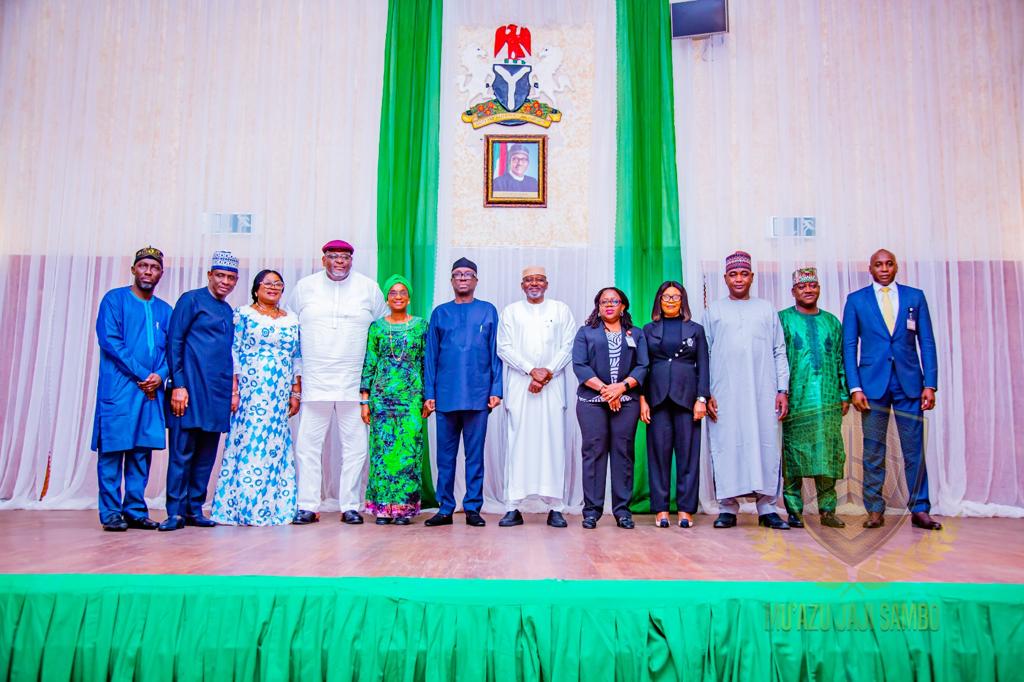The Vice President, Prof. Yemi Osinbajo has charged members of the Expanded Partnership Committee on Sustainable Blue Economy in Nigeria (EPCSBEN), to bring their wealth of knowledge to bear in the overall interest of the country.
Represented by Minister of Transportation, Muazu Jaji Sambo, Osinbajo, made the call at the fourth meeting in Abuja where he reiterated that the essence of the Committee is to develop a Nigerian version of the Sustainable Blue Economy concept, with a view to having an all-inclusive policy document for the maritime sector in line with global best practices.
Osinbajo, who is Chairman of the Committee stated that the body can only achieve its goals if members work together and eschew self-interest and parochial sentiments.
According to him, the concept of Blue Economy is all about the sustainable use of ocean resources for economic growth, improved livelihoods and job creation while preserving the health of ocean ecosystems, besides the traditional ocean activities such as maritime transport etc., it entails emerging renewable energy, seabed extractive activities and marine biotechnology/bio-prospecting.
The VP explained that the blue economy attempts to embrace ocean ecosystem services that are not captured by the market but provide significant contribution for economic and human activity.
He said: “The concept of Blue Economy is a new frontier aimed at economic development and diversification through the use of resources from oceans, seas, rivers and lakes for the well-being of people. It also provides a positive contribution to the achievement of the Sustainable Development Goals (SDGs), 2052, African Integrated Maritime Strategy (2052 AIM Strategy) and the UN 2030 Agenda.
“There is no gainsaying that Nigeria is endowed with enormous aquatic and marine resources including oceans, seas, rivers and lakes with potentials for growth of Blue Economy.
“These water bodies are of strategic importance and can provide huge opportunities for fisheries, aquaculture, shipping, coastal tourisms, offshore oil and gas energy mobilization and other Blue Economy related activities.
“I therefore admonish us to bring our wealth of knowledge in relevant areas of specialization to bear in the course of this national assignment in the overall interest of Nigeria. I encourage you all to keep up the excellent and critical work you are doing for the economy” he said
Also speaking at the event Dr. Felicia Chinwe Mogo, a technical consultant and international maritime expert said blue economy has the potential to outperform other areas of the economy if properly harnessed as a whole for investment and employment opportunities
She added that Offshore and Ocean energy, marine biotechnology , coastal tourism, transport and food production sectors could offer unprecedented development for national economic growth premised on the blue economy concept
Mogo said for Nigeria, with a deficit of 17-23 million homes, new maritime opportunities would provide safe and secure living, for value-added
economic growth.
According to her, as Nigeria contemplates the use of oceans to deliver it’s human necessities such as food and energy in a way that is more sustainable, it should also meet environmental targets by eradicating waterways, coastal and marine pollution.
According to her ,the Blue economy drive has the potential to align with Nigeria’s Economic Recovery
Growth (ERGP) to create 7 million jobs in 3 years for our teeming youth
population and huge housing deficit especially in the coastal region.
She said ,for such rapid high impact growth, Nigeria’s vision for the Blue Economy should leverage lessons and experiences of what has worked elsewhere.
Recall that at the inaugural meeting of the EPCSBEN on January 17, 2022, it was resolved that a Sub-committee be constituted to develop the Thematic Working Groups (TWGs) to aid the work of the main Committee.













